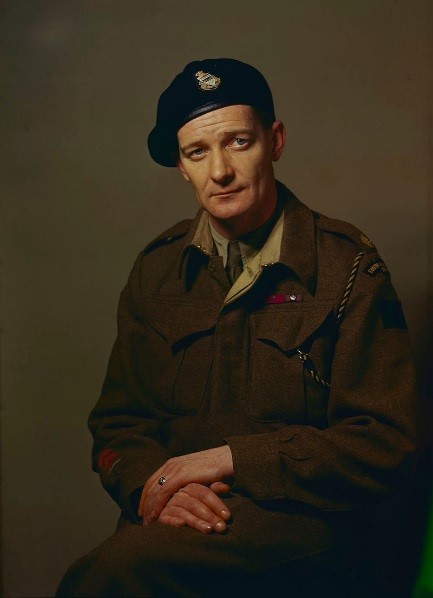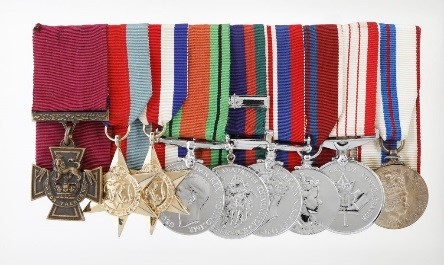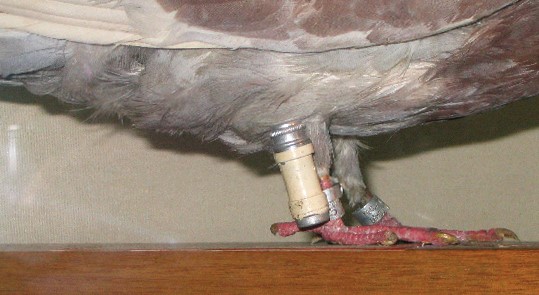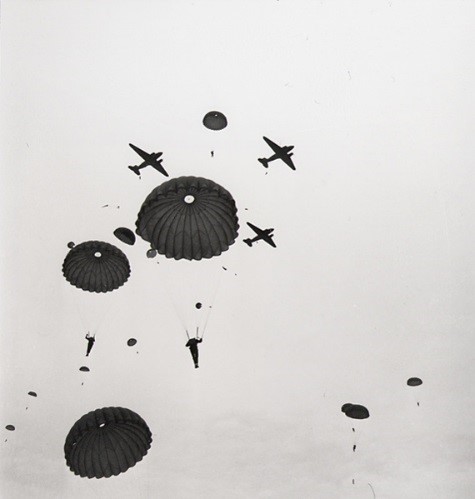This publication is available upon request in alternate formats. PDF Version
On the beaches in Normandy, France, you can see dogs playing in the ocean and families soaking up the sun. This area is a popular place to visit for a quiet vacation by the sea! But it was a different scene years ago in the Second World War. On D-Day, during the battle at Juno Beach, hundreds of young Canadian men bravely fought there on the beach to help the people of France who were being bullied by another country. The Canadians came by boats and airplanes. It was very dangerous, and sadly, many of them died.
It is important to remember all those who fought. They deserve our thanks for their courage.
Everyone who served was very brave. Some of them were even awarded medals!
Major David Currie, from Saskatchewan, was one of them. Currie led an attack on a village in the face of enemy tanks, guns and soldiers. He never considered the possibility of failure, and he cheered his men on with encouraging words. He was seen as a hero and set a very good example to all the soldiers under his command. He was a true leader.
For his bravery, he received the Victoria Cross medal (also known as the VC), which is the highest award for bravery in the face of the enemy he could earn! He was the only Canadian awarded the VC during the brutal fighting in Normandy during the summer of 1944.
His medal, along with other medals that he received, is now on display in the Canadian War Museum in Ottawa, our nation’s capital.
Did you know that animals also served on Juno Beach? Before the days of smart phones and tweets, pigeons actually delivered messages. Soldiers would place important messages inside tiny containers attached to the pigeons’ legs and the pigeons would fly away and deliver the messages. Dogs were trained as “paradogs” to jump out of airplanes and parachute onto the beach to help the soldiers. They even wore their own parachutes! The dogs flew from England to France with British and Canadian soldiers the night before D-Day.
The first news of the soldiers landing successfully at Juno Beach was carried by Gustav, a homing pigeon with the Royal Armed Forces. He flew nearly 250 kilometers from the beach in France, right across the English Channel in 5 hours and 16 minutes to his loft at the soldiers’ headquarters!
Another animal, a dog named Bing, also served at Juno Beach on D-Day. The “paradog” jumped from the plane with his handler and was trained to locate the enemy and protect the soldiers. He must have been scared flying so high in the sky and jumping out of airplanes!
The efforts of these brave animals earned them each the Dickin Medal. The award is considered the animal version of the Victoria Cross!
It was dangerous work, but these birds and dogs were loyal and faithful to their owners. They were amazingly brave.
We should remember that the men and women who served in the Second World War at places like Juno Beach were helped by animals and birds, like Gustav and Bing.
True bravery at D-Day on Juno Beach! Let’s remember them all.



